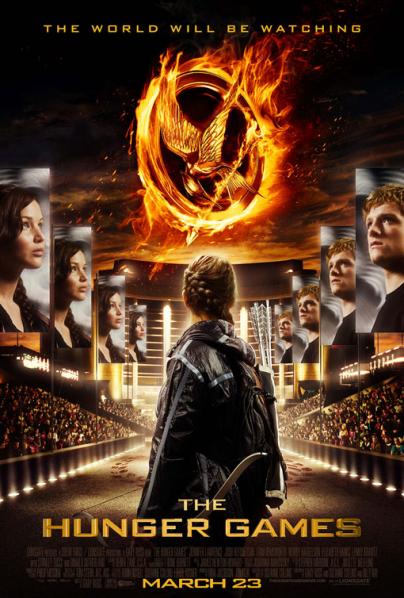So I decided to read The Hunger Games.
I bought the book in 2008, right after the death of the Twilight series in the form of Breaking Dawn. Still an avid "Twi-hard," I began searching for any reading material I could possibly find that would fill the void that penetrated my soul at the loss of Edward Cullen (I write this with an extraction of words I might have used to describe my pain when coming towards the end of Breaking Dawn in 2008).
Stephenie Meyer, incidentally, had foreseen my (and many of my weird obsessive peers) need to find a "new" Twilight. It's almost as if she heard me complaining vociferously about not getting to read about the marble statue vampire man with whom I had fallen in love despite his being an offbeat pedophile and a creep (took me a while to connect those dots).
So Meyer publicly endorsed The Hunger Games.
I don't know that I necessarily attribute Suzanne Collins', author of The Hunger Games series, massive success to Stephenie Meyer, but I definitely belief it was a contributing factor. If not for Stephenie Meyer's review, I doubt I would have even paid the series a second glance.
Yet even with my insatiable desire for a new addictive book series, I didn't pick up Hunger Games until very recently - that time I mentioned earlier: as I was getting sick this past December.
But certain things had changed since I read and loved Twilight, certain things even greater than no longer considering myself a cheese ball romantic who thought having a guy stare at you while you sleep is an attractive quality.
In those three years between finishing Breaking Dawn and picking up The Hunger Games, I became a vegetarian.
 |
| I stole this photo from the internet [Credit: Lionsgate] |
While I was reading, I had to take a few moments to just stop and regroup. Even subtle mentions of meat-eating on a daily basis can get to me and having to read about hunting and eviscerating became much too much for my delicate temperament.
But I kept reading. I kept reading because despite it being a Young Adult novel with the trappings of indelicate subject manner and a weird, alienating style (I am not a fan of present tense), The Hunger Games as a series is inherently good.
I am easily bored by what I read. I tear away from books for months at a time, realizing after a long time has passed that I've added yet another book to my constantly growing "Never-to-be-finished" list. If I am going to keep reading, I have to be captivated.
And The Hunger Games, no matter how gruesome, is captivating. Reading about Katniss Everdeen and Peeta Mellark was like getting sucked into a vortex of time and space where nothing other than The Capitol, the forest and the tributes existed. I lived there inside my mind as I read, absorbing the height of the trees and the barren, water-less ground.
Even when Katniss hunted, occasionally with a bit too much detail on animal dismemberment, I remained absorbed in the story, turning page after page as bunnies were slaughtered just to find out what happened next.
It's a testament to a compelling story. Something I'll admit I found within the pages of Twilight as well so many moons ago. With simplistic language, these books survive primarily on their plot, carrying readers into a different world and making them thirst for more content, for resolution.
I read The Hunger Games with a discerning eye on the very barbaric nature of the text. I'll front any attacks by saying I am aware it was warranted by the story, being set in a world where many people are forced to secretly hunt for their food lest they choose to die of starvation. But regardless of context, starting this series can only be done by those who can stomach it.
And I realized I could. Because as often as I felt queazy from reading about blood and guts, I was in equal parts rewarded for standing the disturbing nature of the text at large.
Because in reality, this book is not just about starvation. It is about many levels of destruction and terror, of fascism and fatal internment. It's a book that makes you re-examine your own notion of the world you live in, and it makes you realize that everything could be much much worse.
Where I will draw a well-deserved distinction between Twilight and The Hunger Games is in the strength of character and moral. The former is a romance novel masquerading as a morality tale about decision-making, that at times falls completely off track and rewards people for stupid decisions. The latter is a book about bravery and strength and conviction. It makes you believe in the characters as well as you can picture them as you read.
The Hunger Games may be gruesome. It may at times be hard to stomach. It may be simplistic in structure. But when I read it over one day during my winter break in December, I continued to read it anyway. And if that doesn't speak of greatness, I don't know what does.

No comments:
Post a Comment